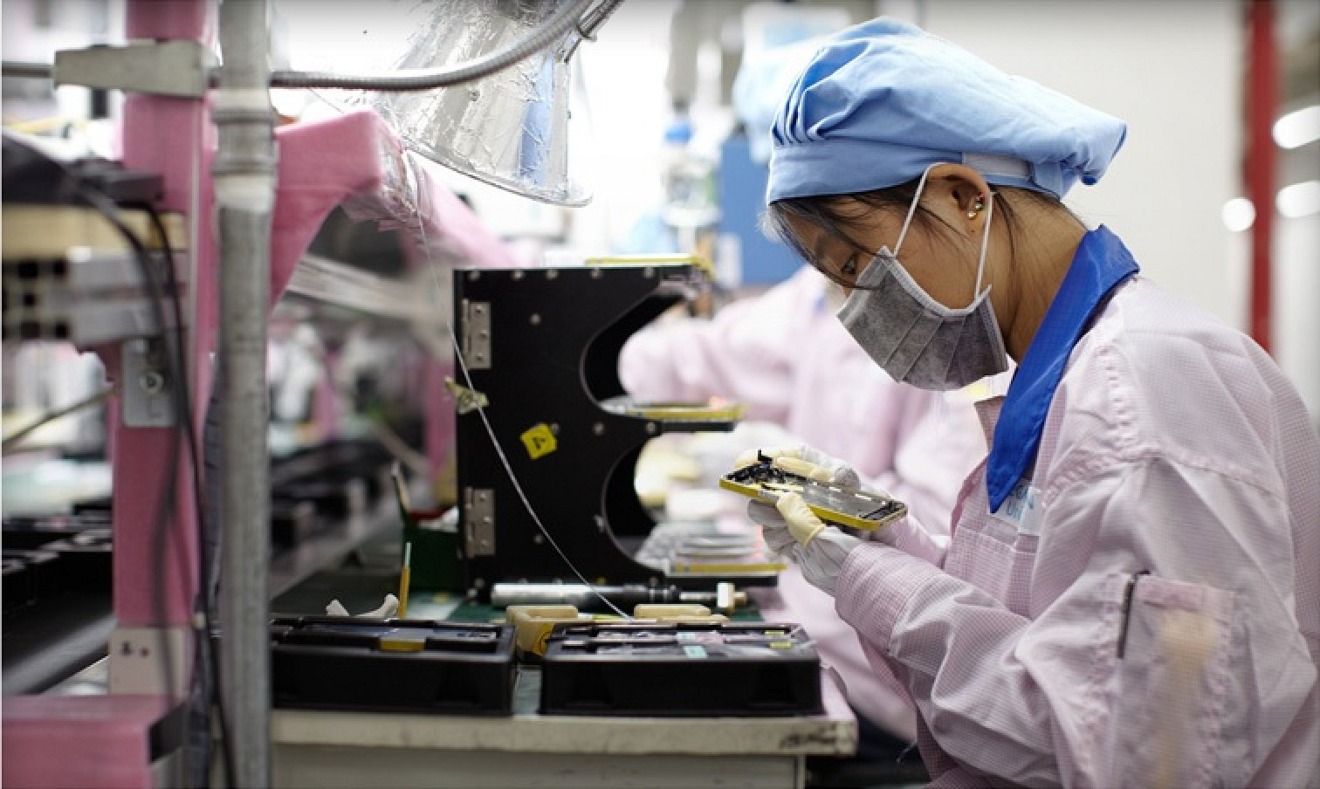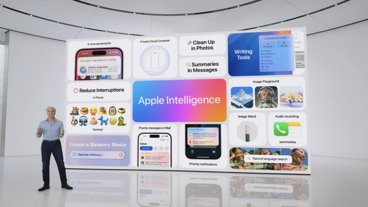Whether Apple likes it or not, the fate of some national economies is now intrinsically tied to that of the iPhone, the International Monetary Fund said in a report released this month.
Smartphone sales and production amounted to $3.6 trillion of the global economy in 2017, the IMF said in its April World Economic Outlook. The industry represented 5.7 percent of Chinese exports, and in Ireland — where Apple's European operations are headquartered — iPhone exports alone are said to have amounted to a quarter of the country's economic growth, in value-added terms.
In South Korea, where Apple suppliers/rivals like Samsung and LG are based, semiconductors represented 17.1 percent of all exports.
This could mean a crisis is looming, since the smartphone industry is slowing down, the IMF indicated.
"By decomposing the cycle from trend for Chinese exports of smartphones, regression results show that the trend is nonlinear and may have reached its peak in September 2015, suggesting that future global demand for smartphones may grow more slowly (driven more by replacement demand than new acquisitions)," it wrote. "This is confirmed by updated regression results on Chinese export data up to December 2017. In fact, global shipments of smartphones declined in 2017 for the first time on record."
iPhone production relies on a complex network of assemblers, distributors, and parts and mineral suppliers, numbering in the hundreds. The product has yet more impact on the likes of carriers, retailers, app developers, and accessory makers.
Apple shares have taken a hit in Thursday trading on news that TSMC, the maker of A-series chips for iPhones and iPads, is forecasting $1 billion less revenue than analysts anticipated. That could be related to claims Apple is cutting iPhone X production to fit demand.
 Roger Fingas
Roger Fingas








 William Gallagher
William Gallagher
 Andrew Orr
Andrew Orr
 Malcolm Owen
Malcolm Owen


 Wesley Hilliard
Wesley Hilliard





-m.jpg)




9 Comments
So basically if the economy collapses, it's Apple's fault.
Also your last paragraph is bunk. Perhaps the analysts were wrong in the first place rather than Apple is drastically cutting production of the iPhone X. Apple is pretty good at what they do. Analysts, not so much.
For every prediction of gloom and doom there’s a corresponding prediction of rainbows and Unicorns. Check that out on any financial blog. Which scenario you base your investment decisions on is related your to personal outlook on life. For every stock share sold in panic there’s a stock share bought on speculation. One thing is for sure though. Analysts have a long history of being wrong about Apple and you can take that to the bank. Tim Cook has repeatedly warned analysts about coming to conclusions based on supply chain reports and analyses of them. But analysts never listen and usually wind up eating crow when it comes to Apple.
So if I don't buy a new phone every other year now, in the two "off years" I can refresh my iPad, MacBook Pro, HomePod, iMac, Watch, etc. And we haven't even mentioned Services yet...In short, no other tech company is hedged better than Apple of smartphone plateau.
Meanwhile, here is a repost from another thread, relevant to TSMC, excerpted from today BAML report on Apple:
CQ2 iPhone units could see some downside
Overnight, TSMC guided down CQ2, pointing to weakness in high-end smartphones. We are already modeling below-consensus units for Q2, at 40mn units vs. the Street at 42- 43mn units for the June quarter, which we had lowered after our Asia trip last month. Given TSM’s guidance, we could see some additional downside to iPhone units of up to 5mn units for Q2, based on channel inventory dynamics.
Shipments likely higher than builds
Although CQ2 builds are ticking down, the sell-in is likely to be higher. Q2 normally faces the challenge of late-in-cycle iPhones released in the prior year when the upcoming launches in September start to detract from sales. The weaker traction of the iPhone X in CQ1 likely was further magnified in CQ2, causing further order cuts.
Potential impact to estimates
A 5mn shortfall in iPhones would likely lead to incremental pressure of ~$3.5bn in revenue (we are already at $50.4bn for the June Q, vs. the Street at $52bn), and EPS could see incremental pressure of $0.20 (We are at $2.06 vs. the Street at $2.15). Buybacks could be a small potential offset for 2Q (based on the magnitude completed in 1Q).
iPhone weakness understood, magnitude could be higher
We’ve known for some time that handset sales were slowing, what with numerous reports of lengthening upgrade cycles and all. Why is it then, that visible evidence of this slowdown is being met with so much surprise?
forecasting Apple’s revenue and earnings used to be a function of calculating growth rates. I stopped doing that more than a year ago, ignoring unit sales estimates and instead focusing on managements guidance.
Management cares about each of its revenue streams but manages the company as a whole, and plans future growth opportunities where they believe the market is heading. For more than a year Apple has been touting Services growth. To that end Apple’s recent focus has been on Apple Music and video creation (I think HomePod is going to be an important part of that focus). You can see it in it’s hires, conference call comments and advertising. The iPhone X is a defensive move to protect handset revenue in a saturated market where units sales growth have stalled and may go into decline. Those that equate unit sales as success (manufacturers and investor alike) are going to lose their shirt/s. Only those producing sustainable profits will survive. In the handset industry there are only 4, maybe 5, that will survive the next 4 years (Apple chief among them). Diversifying revenue streams is key to survival, and none have diversified as well as Apple.
That WS is surprised by TSMC’s guidance illustrates just how weak it’s analysis is (at least the analysis provided the public through media outlets). Today’s trading in AAPL reflects just how badly WS fails to recognize the importance of the whole. It’s a forest out there. Focusing on the trees is a fools game.